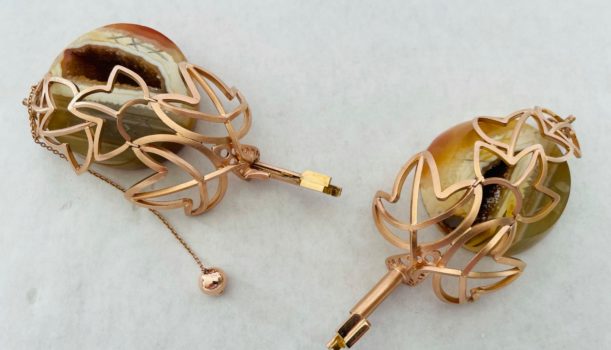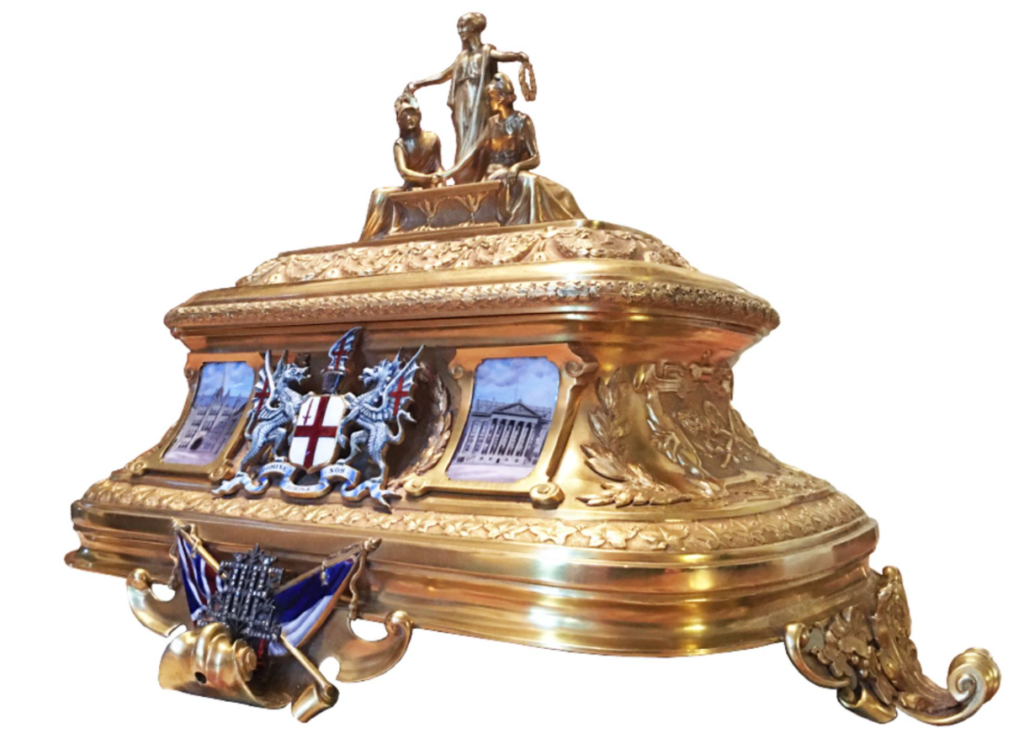Within the book of The Golden Treasure of the Entente Cordiale is a historical chapter on the Golden Casket. Stephen Clarke, well known for his Merde Series, selling over a million copies, wrote this informative section. He shares the tentative nature between France and England, and how the Golden Casket played its part in calming events.
This forgotten treasure, cast in solid gold, holds a past to appreciate. To not be forgotten. I am grateful to have the chance to ask Stephen Clarke more about the treasure, the history, and of course, James Bond.
Enjoy learning more about the Armchair Treasure Hunt for the Golden Casket and the history behind the valuable treasure!
Six Questions with Stephen:
- 1Q) The Entente Cordiale is an amazing piece of history. When researching the Entente Cordiale did you happen upon anything which surprised you? What do you find most interesting about this finely crafted gold casket?
I was shocked to learn how close we were to World War in 1904. Without King Edward VII and French President Emile Loubet’s personal determination to sign an Anglo-French pact, Britain might have sided with Germany and invaded France. And the story of how Edward VII, a lover of all things French after spending most of his younger days in France’s chateaux, cabarets and brothels, refused to side with his own nephew, Kaiser Wilhelm of Germany, is an exciting tale of espionage and brinksmanship. Edward and Loubet had to fight against public opinion and their own politicians to avoid imminent war. It was only after Edward died that the Kaiser finally got his way in 1914 and started the conflict, but with Britain on France’s side, otherwise the outcome – and modern Europe – would have been very different. And to me, the golden casket is a physical symbol of all this. All its decorations, the statuettes, flags and emblems, are symbols of the Entente that have been set in gold and enamel to seal this improbable but lasting friendship.
- 2Q) When Michel Becker told you he was giving this gold casket as a prize for a treasure hunt, what were your initial thoughts? Did you ever feel like, ‘this belongs in a museum!?’ How do you think someone will feel when holding it in their hands? Will they sense the extraordinary treasure it is? How did you feel when you first saw it and held it in your hands?
Yes, I was surprised that the casket wasn’t in a museum. And when I picked it up, I wondered why it wasn’t in a vault. It’s a huge lump of solid gold. With decorations, of course, and the scroll inside, which is a very moving document, an expression of Anglo-French friendship, a sort of English love letter to the French at a time when world peace was in the balance and everyone was afraid of the Kaiser. So a weighty document in its own right.
- 3Q) Do you know any part of the solution to the treasure hunt? What inspired you to become part of the project? Do you follow along with the progress of searchers for the gold casket?
Yes I know the solution and if you make a payment into my Swiss bank account… No, of course I don’t know it. It has to be top secret. All I know is that after I had written the English version of the book, I got a message saying things like, on page 55, line 3, can we say “and” instead of “but” because we need a letter “a” here? That’s not a real example, by the way.
- 4Q) From a perspective of someone living in the USA, France and England seem like an old married couple always bickering, but yet content and happy in doing so. How would you describe English and French relations?
People say it’s love-hate, but I’d say it’s more the love that dare not speak its name. We’ve been political rivals and often enemies for 1,000 years, but we’re also neighbours, so we know each other really well, and are often annoyed by each other’s bad habits. Fortunately these days, we exchange trade barriers, political jibes and jokes rather than arrows and cannon balls, but deep down we have a crush on each other. Brits love and envy everything about France’s sophistication – the wine, the less smelly foods, the chic. The French think we Brits are hip and they adore the Queen, and that if they go to London, they’ll bump into James Bond and Elizabeth II out for a stroll with the corgis while being serenaded by the Beatles. I exaggerate slightly, but that’s basically it. The political rivalry is more to keep up appearances – “of course we’re enemies, we don’t love each other at all!”
- 5Q) What attracted you to writing about history? What part of the past is most mystifying for you? Has the treasure hunt prompted further research into other forgotten treasures? Do you believe lost treasures are out there to discover?
I wrote 1000 Years of Annoying the French because I realized that we Brits and the French have completely opposing views of the same events in history. One example: the French say we burnt Joan of Arc, which is strictly true, but what they don’t say is that they took her prisoner, they put her on trial and condemned her as a witch – before getting English soldiers to light the bonfire. And the whole of our shared history is like that. Our views of Napoleon, even the origins of Champagne and the song “God Save the Queen”. As for forgotten treasures, who knows. But there are plenty of untold anecdotes.
- 6Q) Can you share what you are writing/working on now? And when not writing what do you enjoy? Any hobbies? Oh, and I must ask about the latest James Bond movie, No Time to Die. What are your thoughts about the ending? Is this a beginning or finale for dedicated fans who loved the suave 007? (and please share more about your book, The Spy Who Inspired Me)
I’m working on several things. A new novel from my Merde series. A TV comedy based on a chapter of 1000 Years of Annoying the French (no spoilers). And an update of the book 1000 Years of Annoying the French – a smaller collection of new historical anecdotes. Forgotten treasures if you will. As for Bond, yes, I published a 007 spoof novel last year, The Spy Who Inspired Me. It’s about a female spy who teaches a very Bond-like, but inexperienced, male agent everything he knows about spying during a mission in Occupied France in 1944. It’s a joke about how macho the “real” Bond is, having this man getting humiliated by a sort of Bond girl, but she is the real spy, and a ruthless one at that, capable of surviving without all the champagne trappings that 007 enjoys. As for No Time to Die, I loved it, it’s a classic 007 film, but if Daniel Craig is going to be replaced by a woman, I don’t mind. It doesn’t really matter whether there’s a male or female 007 on screen, because Ian Fleming’s original Bond was so different from the movie Bond that a change of gender really wouldn’t matter. The Bond in the first novel was a posh, chain-smoking, half-Swiss snob who talked about food all the time and drove a 1930s Bentley. That’s part of the joke in The Spy Who Inspired Me: real spying at that time wasn’t at all sophisticated – it was dirty, brutal, with definitely no time for Martinis.
Click to visit the Golden Treasure of the Entente Cordiale Treasure Hunt‘s website
Michel Becker is graciously offering 5 Poster Series, and 5 of each version (French and English) of The Golden Treasure of the Entente Cordiale to give away to searchers of the KEYS. To give these away, MW is planning Fun and Games over a course of time until all prizes are rewarded. Please visit the MW Forum for more information.
Go to MW’s Page on The Golden Treasure of The Entente Cordiale
(MW’s pages link all related posts on this site for a particular treasure hunt)
You might also enjoy reading:
Six Questions with Michel Becker: Creator of the Golden Treasure of The Entente Cordiale
Six Questions with Pauline Deysson: Co-creator of the Golden Treasure of The Entente Coridale
.



